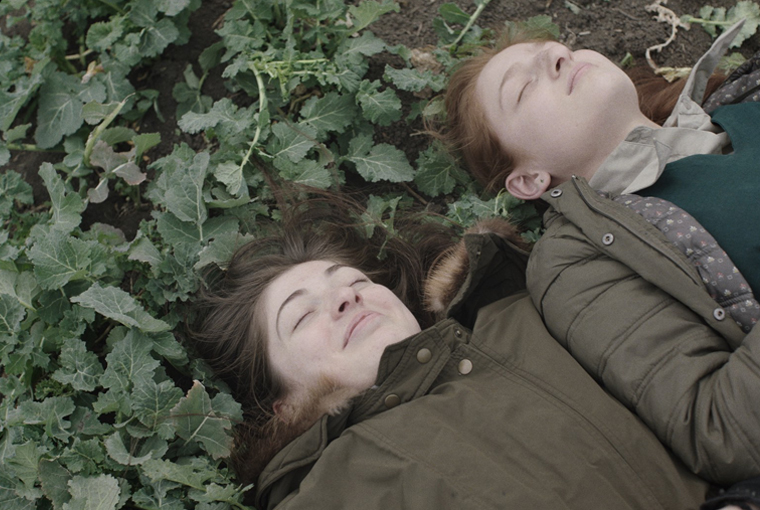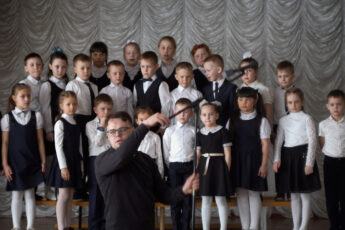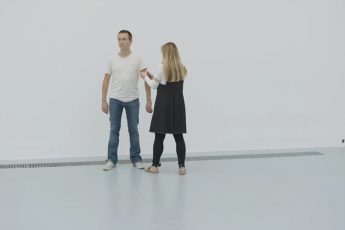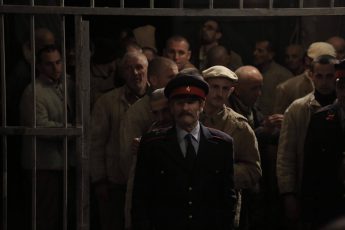The Only Way Out From Here
Malika Musaeva’s The Cage Is Looking for a Bird (Kletka ishet ptitsu, 2023)
Vol. 141 (January 2024) by Margarita Kirilkina
The Cage is Looking for a Bird is a film in tender pastel colors by Chechen director Malika Musaeva that follows the fate of young women living in a small, Caucasian village. The imagery is dominated by wide expanses and distant horizons. It’s a pure space of vastness and emptiness without a single tree. Two young girls, Yakha and Madina, run down the hill, as if they were about to fly, fly away from here. Their childhood dream is to escape this place in search of a “better life”. For the village surrounded by these endless landscapes is one where people live by the laws of traditional society.
Despite the girls’ childish games, the only way to escape from here is to get into a car. Either into the car of a future husband, which would be a way of saying “yes” to marriage. Or into a cab that could take them to the train station from where they would take their journey even further away to the big, unknown world of their dreams. The second goal is more attractive, but reaching it is not a given. The village is a fortress where time has stopped. The only laws that work here are the laws of the patriarchal family.
Nevertheless, the film’s space belongs to women. Except for young boys, men in the film are almost invisible. Malika Musaeva films them without showing their faces, from feet to neck, as if to exclude them from the narrative. However, they are present here in the form of the mechanical eye, following the girls around as if watching over them, creating the feeling that the girls are always under the scrutiny of the male gaze. Wherever Yakha (Khadizha Bataeva) and Madina (Madina Akkieva) are hiding, they are sure to be found, only to be locked up in the cage again. Once, while hiding away in the attic with hay, where they share secrets and girlish dreams and their bodies are in almost intimate proximity, the voice of her little brother calls out Yakha’s name. They manage to hide from him, but not from the adult brothers and fathers who have established their own rules of the game and handed them down from generation to generation.
Malika Musaeva uses close-ups to enter spaces of intimacy and create a sense of tactility. The relationship between Yakha and Madina is not only childishly playful, but also made up of silent glances and touches – it’s their last breath of innocence and freedom. The camera smoothly glides over their skin, hinting at a latent eroticism that has not yet been claimed by familial institutions. But this summer, they will finish school, and their fate is to get married, as their sisters, mothers, and grandmothers did before them. A boy takes Madina away in a car, but in Yakha’s landscape, there is a road into which she shouts, the echo responding with hopes. Her choice is a taxi. With money she steals from her family, Yakha tries to escape, but Madina warns her family about it. At the station, Yakha’s sister arrives to pick her up. Here, women help to confine themselves and each other in the cage, ritually reproducing the same relationships that they inherited.
The process of choosing a future husband, with mothers doing their part through plotting, gossiping, and persuasion, challenges our modern Western view of a wedding as a celebration of romantic love. Here, the union between a man and a woman is an archaic economic project. The most advantageous match has already been settled for Yakha. Since her escape plan in a taxi fails, she gets into a car with her childhood friend who also seems to want to leave, just like many young guys also do who are similarly suffering from the power exerted by their fathers. However, Yakha’s family is against it, and she has to return home, her cage slamming shut again. But in the end, it’s her older sister who makes her escape. From being a secondary character, she thus suddenly becomes a main one, as it is she who manages to undergo her own transformation. From being a woman who unquestioningly submits to her mother, she turns into a woman who makes her own decision and determines her own destiny.
Malika Musaeva’s film addresses pressing issues of contemporary Chechen society – notably the patriarchy as well as national self-identification. Musaeva is a former student of Alexander Sokurov, producing many of her student films in her native region with its local identities and languages, which, despite everything, it has managed to preserve. This gives voice to national minorities in the enormous, multi-ethnic state that is Russia, who each possess their own culture that is recognizably distinct from the dominant one and – especially on the level of local communities guided by their own rules – face their own challenges, which Malika Musaeva unfolds with great tenderness.




Leave a Comment